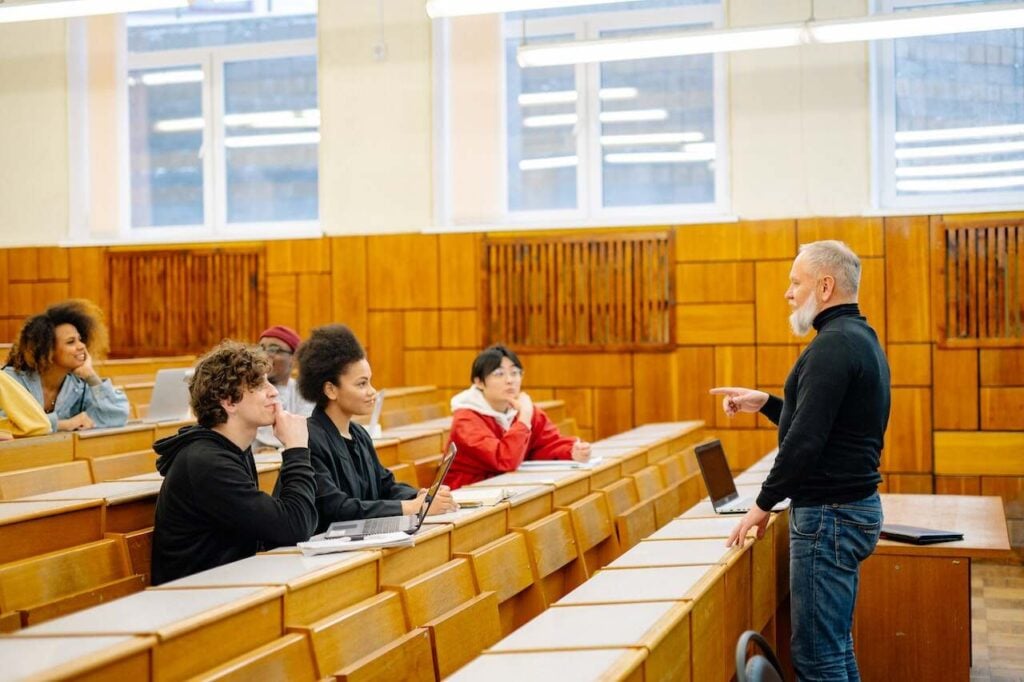Community colleges in the US are focusing on boosting employability skills, and supporting lifelong learning for students. Here’s what some thought leaders from the Liberal Arts education space shared.
If we’ve learned anything from the chaos of the past few years, it’s that industries across the spectrum must possess the ability to rapidly transform in response to changing global demands. We explored this issue during a webinar hosted in partnership with Times Higher Education, focused on the value of a liberal arts education. Felicja Syska, Vice President of University Engagement, Cialfo, was joined by Alistair Lawrence of Times Higher Education, and leaders from notable liberal arts institutions across the United States, including Dr. Jeffrey R. Docking, President, Adrian College; Kent Deveraux, President, Goucher College; and Dr. La Jerne Terry Cornish, President Ithaca College.
One of the first topics that arose was the subject of future employability when it comes to pursuing higher education abroad.
In a 2021 Cialfo survey of more than 3,785 high school students across 100 different countries, 46% of students surveyed indicated concern that the pandemic would impact their future career prospects. In addition, 39% of students from APAC and 50% of students from LATAM cited better employment opportunities than in their home countries as a primary reason to study overseas.
The survey also indicated that 60% of students were highly concerned about cost when prioritizing the lists of potential universities.
Students want to make sure their higher education experience not only readies them for the next-gen workplace but also provides the best return for their financial investment.

Dr. Cornish shared her perspective on some of the admissions conversations she’s experienced at Ithaca College, noting: “One of the biggest challenges we face is: preparing students for fields that don’t exist. Students and their parents want to have a clear understanding of the value of a college education – they are concerned about relevance (How is this going to be relevant when I leave the college)? Parents are concerned about value and they want to know how their child’s education will be relevant.”
So how does a liberal arts program address these issues and how do these types of colleges work to maximize students’ future employability?
There are a number of ways that smaller, liberal arts colleges work to provide international students with the knowledge, experience, connections, and ongoing support to ensure their ongoing success. These include:
- Career exploration: Giving students the ability to “try out” different careers by participating in internships, taking coursework in new and emerging majors, shadowing alumni employed in their desired fields, and leveraging programs that their institution may have with larger universities.
Kent Deveraux of Goucher College spoke of the importance of trying on “different hats” and getting hands-on experience in a field of choice before making a commitment to a particular path.
“College is the time of your life where we want you to stretch and we want to fail – but fail safely. Students have the opportunity to shadow professionals starting in their first year which gives them exposure and a chance to decide that this may not be the “field for me”. We want students to find out earlier and give them opportunities to try other things.”
Kent Deveraux, President, Goucher College
- Providing alternative cost-effective pathways to graduation: In today’s economy, financial concerns are top of mind for many international students. Many small liberal arts colleges are working to offset the financial burden for students through matriculation partnerships they’ve forged with their local community colleges. These programs help international students save money by completing their pre-requisite courses at a community college (at a lower tuition rate) instead of enrolling right away in a 4-year institution.
Dr. Cornish spoke of the matriculation programs available through Ithaca College, saying: “We are providing pathways, and being in a college town affords international students the opportunities to see three types of institutions working together to meet their needs and service the needs of the community as well. We like to say we are a private college serving the public good.”
- Acquiring transferable, in-demand skills through Interdisciplinary Studies: Instead of focusing on just one subject area, liberal arts students are exposed to a broad range of intellectual and practical studies. This helps them develop valuable communication, analytical, and problem-solving skills that can be applied in real-world settings.
For example, Adrian College has addressed the need for teaching transferable skills within a well-rounded interdisciplinary program by introducing 17 new majors within the last two years.
“The way we’ve been able to do this is we’ve worked in collaboration with about 135 other colleges called the “Lower Cost Models Consortium” which allows us to share some classes and do some things that we otherwise wouldn’t be able to do.”
Dr. Jeffrey R. Docking, President, Adrian College
- Building social and community support for international students: Many small colleges such as Ithaca, Goucher, and Adrian are located in smaller towns and have strong bonds with both their on-campus and local communities. This helps ease the transition to a new culture and enables international students to make connections more quickly – which is difficult on large campuses with 30,000 – 50,000+ students. Smaller campus size also makes it easier for students to develop relationships with faculty and administration staff who can provide extra support when needed, connect them with alumni and internship opportunities, and provide references well after graduation.
As Kent Deveraux noted: “At a smaller university, you get to know the faculty very well. They become your supporters and biggest advocates.”
- Support lifelong learning- One final factor that sets a liberal arts curriculum apart from others is an emphasis on lifelong learning – meaning the students’ learning experience doesn’t stop once they graduate. As new fields emerge and professional roles seem to evolve daily, liberal arts institutions are committed to the support of lifelong learning.
President Cornish expressed her thoughts on the importance of advocating lifelong learning. She says that career services are available to students but also to alumni for their entire lives.
“Being a lifelong learner where you have academic excellence with everything you do along with the ability to think analytically, creatively, and critically allows you to be nimble as times change.”
Dr. La Jerne Terry Cornish, President, Ithaca College.
This is especially helpful for people who are undertaking new jobs due to the pandemic or who just need to update their skills.
Many thanks to our esteemed panelists and to Times Higher Education for sharing their valuable insights and informing our Cialfo community on the many aspects of a liberal arts education.
For more in-depth insights and data discussed during the webinar, download the report.
Cialfo is thankful to Dr. Jeffrey R. Docking, President, Adrian College; Kent Deveraux, President, Goucher College; and Dr. La Jerne Terry Cornish, President, Ithaca College for sharing exclusive insights on how the colleges support students in their career journey.
Images: Yan Krukov, Kampus Production


